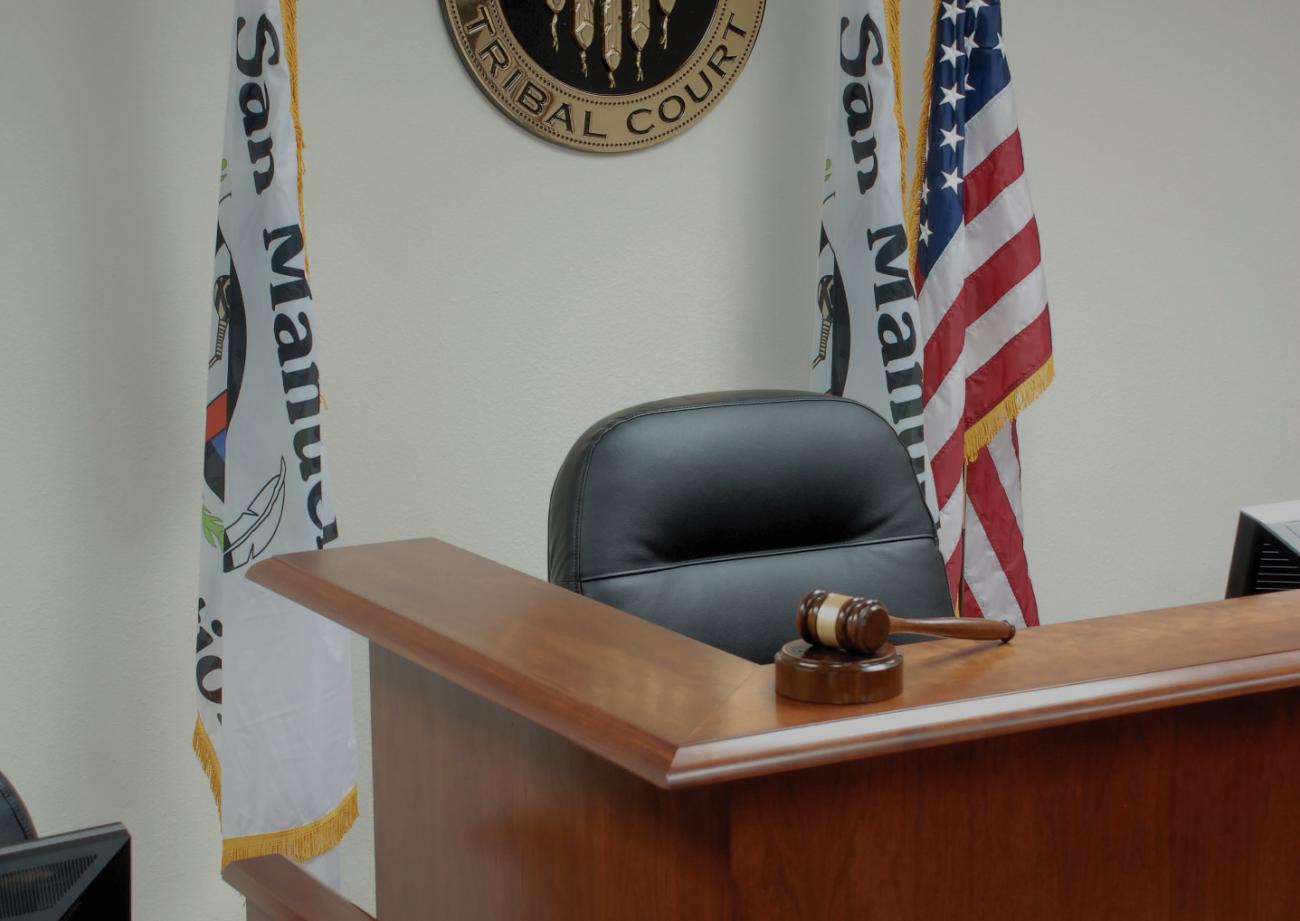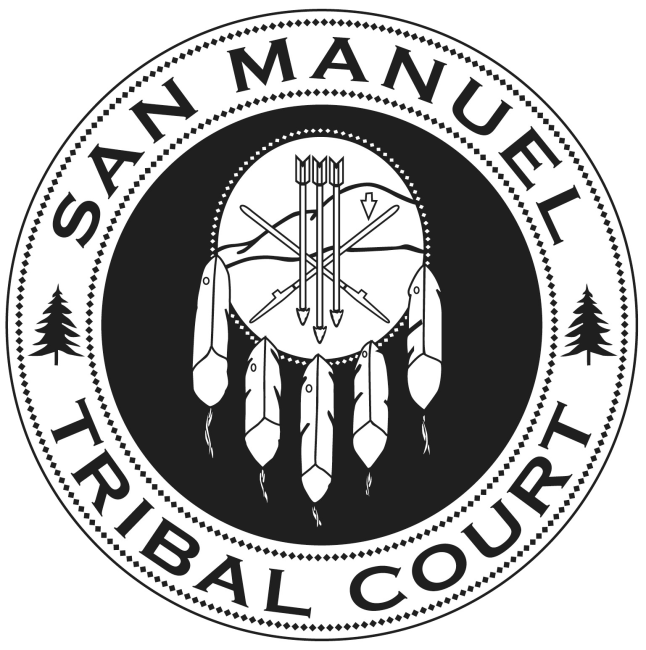
San Manuel Tribal Court
Established in 2003 Opened in 2009

The Tribal Court exercises general civil jurisdiction over our citizens and anyone who has consented to tribal jurisdiction. This includes those who have entered the San Manuel Reservation or anyone engaging in contractual relations with our Tribe.
Our Tribal Court does not hear any gaming-related disputes, which are handled and heard by the Gaming Commission.

FAQs

San Manuel Tribal Court Standards
These standards are intended to encourage order and respect for the proceedings in the San Manuel Tribal Court. Violation of these standards will delay or cause refusal of entry into the courthouse and/or court hearings.
All persons entering the courthouse must travel through the metal detector and to have bags and/or purses inspected. Security will determine if an item is to be allowed into a secure area.
No weapons of any kind are allowed in the courthouse. “Weapons” include, but are not limited to:
- Deadly Weapons (Box Cutters, Butterfly Knives, Firearms, Daggers, Knives, Pen Guns, Razors, Razor Blades, Straight Razors, and Swords)
- Deadly Explosives (Black Powder, Blasting Caps, Dynamite, Fireworks, Plastic Explosives, and Nitroglycerine)
- Flammable Liquids (Acetone, Alcohol, Ether, Gasoline, Lighter Fluid, Paint Thinner, Sterno, and Turpentine)
- Caustic Alkalis, Acids, and Corrosive Substances (Acetic Acid, Ammonia Water, Arsenic, Carbolic Acid, Hydrochloric Acid, Hypochlorous Acid, Nitric Acid, Oxalic Acid, Potassium Hydroxide, Silver Nitrate, Sodium Hydroxide, and Sulfuric Acid)
- Contraband (Bombs, Grenade, Explosives, Incendiary Devices, Land Mine, Poison Gas, and Rockets)
- Any Other Potentially Dangerous Instrument (Ammunition, Ammunition Components (primers, percussion caps, smokeless powder, and black powder used for hand loading), Asps, Baseball Bats, Batons, Bicycle Chains, Black Jacks, Brass knuckles, Bullets, Bullet Clips, Clubs, Cork Screws, Crochet Hooks, Darts, Facsimiles of Weapons, Gun Lighters, Hammers, Handcuffs, Hatchets, Horse Shoes, Ice Picks, Knitting Needles, Letter Openers, Lock Picks, Meat Cleavers, Martial Arts Devices, Multi-Blade Knives, Ninja Pins, Nail Files (4" or longer), Plastic/Brass Knuckles, Safety Pins (large), Scissors, Spikes, Stakes, Syringes, Throwing Stars, Tools, and Toy Guns/Weapons)
Cellphones, video or still cameras, and recording devices are not allowed in the courthouse unless previously approved by the Court. Text messages that are going to be used as evidence need to be printed and brought in hard copy form.
You must have a valid photo ID when filing documents with the court. Government issued photo IDs include:
- Driver's License
- Tribal Identification Card
- Passport
- US Military ID
- Permanent Resident Card
Children are not allowed in the courtroom unless they are offering testimony in a proceeding. Unless they are required to be in the courtroom, do not bring children with you to court, as they cannot be left unattended.
3214 Victoria Avenue Highland, California 92346
Arrive early to your hearing with prepared exhibits. This way you will be able to park, pass through security, get last minute questions answered, and collect your thoughts. Check in at the clerk’s window when you arrive for further instructions.
All parties involved in matters before the San Manuel Tribal Court shall dress in a respectful and appropriate manner, indicative of the dignity of court proceedings when entering the court building. While a clean shirt or blouse; dress; long pants (including jeans that are not torn) or skirt; and shoes are recommended, the following are required:
- Shoes must be worn at all times.
- Midriffs/stomachs are to be covered at all times.
- No halter-tops, tank-tops, or muscle shirts are to be worn. Backs are to be covered at all times.
- No mini-skirts or short-shorts allowed.
- With religious and medical exceptions, no hats, headscarves, headbands, or kerchiefs may be worn
- No exposed underwear
- No fitness (gym) attire
- No See-through tops
- No Flip-flops
- Trousers are to be worn at the waist line and shirttails are to be tucked in
- No clothing with obscene, vulgar, or inappropriate images or wording. This includes, but is not limited to, clothing that depicts or promotes violence; gang affiliation; sex acts; illegal drug use; racially inflammatory words or symbols; and profanity.
Our Judges

Our Tribal Court consists of the Trial Court and Appellate Court. The Appellate Court hears appeals from final judgments and final orders of the Trial Court. The Chief Judge of the Trial Court acts as the Chief Administrator of both courts.
Our Governing Council appoints both the Chief Judge and Appellate Judge, while the Yuhaaviatam Tribal Council of San Manuel appoints the Pro Tempore Judges. The Judiciary Board consults on all appointments.

